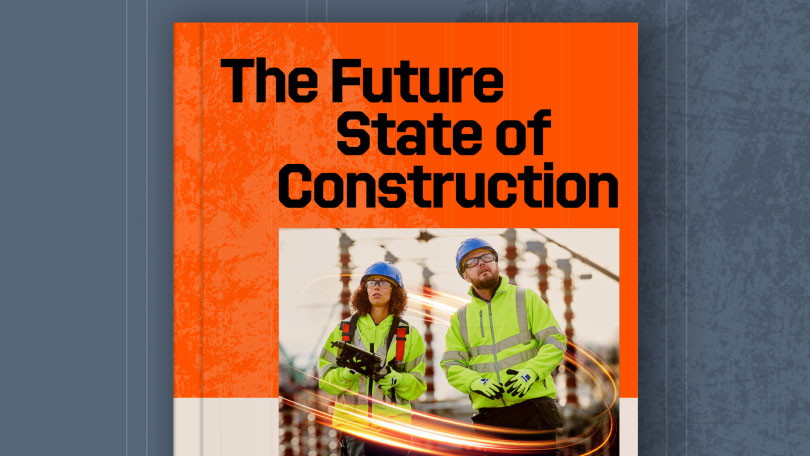— 5 min read
Selecting Quality Bidders for Construction Projects

Last Updated Aug 28, 2025

Allan TK Lwanga
Technical Director
Allan TK Lwanga, MBA MRICS, is a Chartered Surveyor with 20+ years in global cost management and bidder selection. He has led major global projects, focusing on bidder selection and streamlined processes.

Nicholas Dunbar
Content Manager
65 articles
Nick Dunbar oversees the creation and management of UK and Ireland educational content at Procore. Previously, he worked as a sustainability writer at the Building Research Establishment and served as a sustainability consultant within the built environment sector. Nick holds degrees in industrial sustainability and environmental sciences and lives in Camden, London.
Last Updated Aug 28, 2025

As a quantity surveyor with over twenty years of experience, I’ve been involved in a lot of bidding processes. I’ve been lucky enough to work on some prestigious projects, such as St Martin’s in the Field in Trafalgar Square, Chelsea Barracks, and the Marriott Hotel in Rwanda. Projects like this are where I really learnt the core principles of the bidding process and the value of high-quality bidders.
I’ve worked in the UK, in Africa, and the Middle East, and while the culture may be different, the fundamental bidding process is very similar across every region. In this article, I hope to share some knowledge, tips, and tricks from my two decades of experience in the bidding process.
Table of contents
The Importance of Selecting High Quality Bidders
Selecting high quality bidders is absolutely crucial for the health of your construction project. There are three key areas where it’s important to conduct in-depth assessments of the bidders. These areas are:
Consistency
One of the things you are looking for when you assess bidders is how consistent and present the bidder will be on the project. If a bidder has a lot of projects on at once, they may not be as present or consistent as you need them to be. Equally, if their work in the past isn’t of a consistent high standard, this can indicate that they’re not quite the right fit for the job. You want to choose a bidder that can show they are committed to providing the consistent, high level of service that your project requires.
Knowledge and Experience
You need the right knowledge and experience on your project. This is in both the practical elements of completing a job, but also in the more administrative tasks like project management and reporting. If someone doesn’t have the right experience, how are they going to accurately report on the project on a weekly and monthly basis to show the project’s progress? Look at a company’s previous projects and make sure that they have worked on similar jobs, and have a skilled and knowledgeable team across all the necessary competencies.
Communication
Lastly, you need to look for a company that can show that they have great communication skills and can put forward an experienced single point of contact to coordinate with the different teams across the project, such as the design team and the health and safety or risk management team. Trusting that the bidder’s team will deliver the right information in reports and meetings with stakeholders is a big benefit for your project.
Learn about the future of the built environment - Read Procore's Future State of Construction report
Learn how contractors, subcontractors, and project teams can take advantage of new opportunities to boost efficiency and profitability over the next decade. Download the report to get your roadmap to the future state of construction.

The Bidding Process: 6 Key Steps
The bidding process may differ slightly across different companies and different regions, but generally the process’ fundamentals remain pretty similar. As a quantity surveyor, working on behalf of a client, here are the six steps that remain key for every bidding process:
Step 1: Sending out letters for prequalification. This is where you send out letters with a list of questions to screen different companies’ answers before they are invited to bid on the project.
Step 2: Prequalification. This is the step before inviting companies to tender. Here, you grade companies based on their finances, experience, references, and more.
Step 3: Invitation to tender. This step kicks off the bidding process, and involves issuing the formal invitation to tender (ITT) which lets companies know they can bid for the project.
Step 4: Clarifications. After the bidders have seen the ITT, there is an allocated period for bidders to ask for more details to inform how they create their bids.
Step 5: Assessing bids. When all clarifications have been addressed, companies submit their bids for the project. After receiving all the bids, it’s time to assess them and compare them to each other.
Step 6: Recommendation. The final stage in the process is giving your recommendation to the client about which company has the most desirable bid. The client will then make the decision and let the bidder know they were successful.
Green Flags from Bidders
There are lots of signs to look out for during the procurement process that indicate that a bidder will be a good company to work with. Looking out for these ‘green flags’ can help you to take note of the signs that a bidder will be a trusted partner for the project ahead. These include timelines in all communications whether there are formal deadlines or not, detailed pricing in documentation such as in a Bill of Quantities, proactivity, extensive experience, good organisation and high standards for health and safety. If they give advice or recommendations on materials or the design, this can also show that they are an experienced and proactive company that is willing to go above the minimum requirements to ensure the success of the project.
Red Flags from Bidders
Just as there are signs that a company will be great to work with, there are also ‘red flags’ that a company is not going to be reliable or easy to work with. Red flags include not sending enough queries to get an accurate view of the project — or sending too many queries, which can indicate that they’re not really interested. Overpriced estimates, or extremely underpriced estimates, lots of changes to your point of contact, and late submissions of documentation are all other signs that a company is unlikely to be a good fit for a project.
How Technology Streamlines the Bidding Process
At the beginning of my career, the bidding process involved having to fax or post out invitations to bids, answers to clarifications and other documents that are important in the bidding process. These days, there is technology in place that massively speeds up the bidding process. Construction platforms help with reporting, communication to stakeholders and communication with bidders. All documentation is much more shareable with a platform, and you can send out invitations, clarifications, contracts and so on with a few clicks of a button, as opposed to having to write and post them all out by hand.
Overall, technology has brought a lot of efficiency into many processes within construction, including bidding. There is an element of upskilling needed, but it’s worth it to streamline the bidding process, which saves you time and money in the long run.
Categories:
Written by

Allan TK Lwanga
Technical Director | K2 Construction Management
Allan TK Lwanga, MBA MRICS, is a Chartered Surveyor with 20+ years in global cost management and bidder selection. He has led major global projects, focusing on bidder selection and streamlined processes.
View profileReviewed by

Nicholas Dunbar
Content Manager | Procore
65 articles
Nick Dunbar oversees the creation and management of UK and Ireland educational content at Procore. Previously, he worked as a sustainability writer at the Building Research Establishment and served as a sustainability consultant within the built environment sector. Nick holds degrees in industrial sustainability and environmental sciences and lives in Camden, London.
View profileExplore more helpful resources

Integrated Compliance: A Main Contractor’s Guide to ISO 9001, 14001, 45001, and 44001
For UK main contractors, ISO 9001, 14001, and 45001 are fundamental prerequisites to any tendering activity. The Building Safety Act, Net Zero targets, and tight margins mean these certifications are...

The Main Contractor’s Action Plan for Commercial Risk
For UK main contractors, managing risk protects project margins, rather than solely acting as a compliance exercise. Construction is an industry defined by thin profits and high liability, and a...

Construction Action Plans: Minimising Risk & Maximising Delivery
A construction project is a complex set of tasks, resources, and stakeholders. Without a clear, documented path forward, even meticulous planning can lead to delays, cost overruns, and disputes. The...

Construction Drawings: Guide to Types & Regulations
While architects, urban planners and landscape designers first conceive buildings and public realms in their minds, translating vision into detailed drawings remains the foundation for any project. Construction drawings translate...
